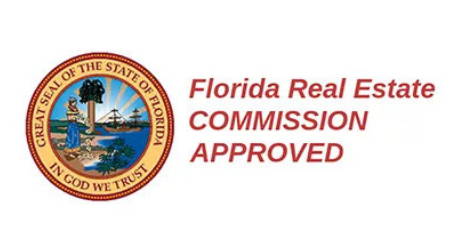
There are many factors to consider when looking for multi-family mortgage loans. These factors include the down payment, interest rate, and alternative financing options. This article will cover the down payments and rates applicable to these types loan. Once you have this information, you will be able choose the best mortgage for you.
Multi-family mortgage rates
The interest rate on a multi-family mortgage loan is affected by many factors. These loans generally have higher reserves requirements than conventional loans. Because multifamily loans have a higher level risk, they are generally more expensive. Buyers should look for a multifamily loan specialist lender.
A traditional FHA mortgage program permits borrowers to purchase multifamily properties that have up to four units. Its low down payment and lower interest rate are some of its benefits. You will also enjoy lower DTI and less stringent requirements.

Requirements for down payment
The requirements for down payments for multi-family mortgage loans differ depending on the property. A three-unit multifamily home may require 20% down payment while a 2-unit property might require only 5%. There are also different guidelines from different banks regarding the amount of down payment required to purchase multifamily property.
Multi-family properties require a significantly larger down payment than single-family homes. However, it is possible to still be approved for a loan with a lower down payment. Some programs may only require a down payment of five percent, while others may not allow any down payments at all. There are also programs that allow you to use the down payment of a parent or relative to finance a portion of the mortgage.
Minimum interest rate requirements
There are several requirements that must be met before you can apply for a multi-family loan. Pre-qualification involves reviewing your assets, credit score, and income. Most lenders require a score of at least 620 to process a loan.
Alternative financing options
Alternative financing presents some challenges. These include limited documentation, a dearth of data on the effectiveness and wide-ranging differences in the types, available financing options, as well as a lack thereof. The lack of research can hinder policymakers from assessing the harms and benefits of alternative financing.

Private equity, credit funds and online markets are other options for multifamily mortgage loan funding. Private equity funds are often used to finance commercial real estate deals. These funds pool the capital and provide equity or debt financing to borrowers. This type of financing is not suitable for all situations and requires due diligence.
FAQ
How many times do I have to refinance my loan?
It all depends on whether your mortgage broker or another lender is involved in the refinance. Refinances are usually allowed once every five years in both cases.
Should I rent or purchase a condo?
If you plan to stay in your condo for only a short period of time, renting might be a good option. Renting saves you money on maintenance fees and other monthly costs. A condo purchase gives you full ownership of the unit. You can use the space as you see fit.
What flood insurance do I need?
Flood Insurance protects you from flooding damage. Flood insurance helps protect your belongings and your mortgage payments. Learn more information about flood insurance.
What time does it take to get my home sold?
It all depends on several factors such as the condition of your house, the number and availability of comparable homes for sale in your area, the demand for your type of home, local housing market conditions, and so forth. It takes anywhere from 7 days to 90 days or longer, depending on these factors.
What are the 3 most important considerations when buying a property?
The three most important factors when buying any type of home are location, price, and size. The location refers to the place you would like to live. Price refers the amount that you are willing and able to pay for the property. Size refers the area you need.
What amount of money can I get for my house?
The number of days your home has been on market and its condition can have an impact on how much it sells. Zillow.com reports that the average selling price of a US home is $203,000. This
Can I buy a house without having a down payment?
Yes! There are programs available that allow people who don't have large amounts of cash to purchase a home. These programs include FHA, VA loans or USDA loans as well conventional mortgages. You can find more information on our website.
Statistics
- It's possible to get approved for an FHA loan with a credit score as low as 580 and a down payment of 3.5% or a credit score as low as 500 and a 10% down payment.5 Specialty mortgage loans are loans that don't fit into the conventional or FHA loan categories. (investopedia.com)
- This means that all of your housing-related expenses each month do not exceed 43% of your monthly income. (fortunebuilders.com)
- When it came to buying a home in 2015, experts predicted that mortgage rates would surpass five percent, yet interest rates remained below four percent. (fortunebuilders.com)
- Over the past year, mortgage rates have hovered between 3.9 and 4.5 percent—a less significant increase. (fortunebuilders.com)
- Some experts hypothesize that rates will hit five percent by the second half of 2018, but there has been no official confirmation one way or the other. (fortunebuilders.com)
External Links
How To
How to find real estate agents
A vital part of the real estate industry is played by real estate agents. They offer advice and help with legal matters, as well selling and managing properties. Experience in the field, knowledge about your area and great communication skills are all necessary for a top-rated real estate agent. For recommendations, check out online reviews and talk to friends and family about finding a qualified professional. A local realtor may be able to help you with your needs.
Realtors work with buyers and sellers of residential properties. A realtor's job it to help clients purchase or sell their homes. Realtors assist clients in finding the perfect house. Most agents charge a commission fee based upon the sale price. Unless the transaction closes, however, some realtors charge no fee.
The National Association of Realtors(r) (NAR), offers many different types of real estate agents. NAR members must pass a licensing exam and pay fees. A course must be completed and a test taken to become certified realtors. NAR recognizes professionals as accredited realtors who have met certain standards.